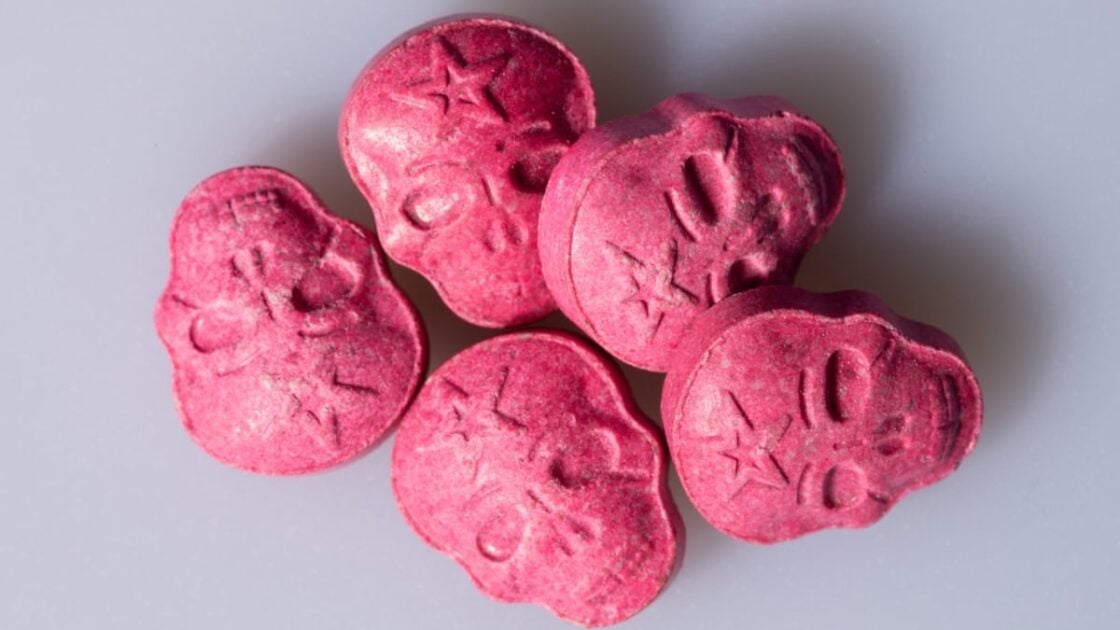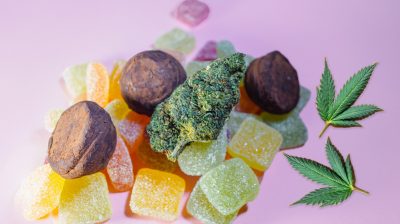What are the effects of MDMA (ecstasy)?
MDMA (ecstasy) is a popular nightclub and party drug that can come in the form of tablets, pills or a crystallised powder

MDMA (ecstasy) is a popular nightclub and party drug. It can come in the form of small tablets, often called ecstasy or pills, or crystals that are crushed into a powder, referred to as MDMA or ‘MD’.
Ecstasy pills are normally sold as tablets with logos or designs printed on the surface of the pill. With ecstasy and MDMA, as with many drugs, there’s always a risk that other drugs or chemicals have been mixed into the tablet.
Powder and crystal MDMA can be either snorted or rolled into a piece of foil or a cigarette rolling skin and consumed. This is sometimes called taking a ‘bomb’ of MDMA.
Find out more about reducing harm when taking drugs.
How long does it take for MDMA (ecstasy) to kick in?
The time that it takes for MDMA (ecstasy) to kick in depends on various factors, such as how it is consumed.
After swallowing an ecstasy pill, it can take anything from 20 minutes to more than 60 minutes to “come up” or feel the effects of the drug. The high, or the effects of the drug, normally last a few hours. There’s usually a “come down” period when the effects of ecstasy wear-off.
It is difficult to assess how long it will take for a snorted line of MDMA to take effect, but it can be anything from a few minutes to 20 minutes, as snorted drugs typically take effect faster. The effects of a snorted dose of MDMA may last an hour or two.
As the amount of time it takes for the drug to kick in varies, it is important to start with a small dose and then wait 1-2 hours before re-dosing.
What happens when you take MDMA (ecstasy)?
The drug works by encouraging various systems in your brain to flood the brain with a chemical called serotonin. It also activates other chemicals, such as dopamine and noradrenaline, but to a lesser extent.
What are the short-term effects of MDMA (ecstasy)?
MDMA causes a calming effect with a warm friendly feeling towards others, and users generally feel less worried about their behaviour and more relaxed (lowered inhibitions). There may be increased self-awareness and increased perception of vision and music. In general, users may find they experience everything around them more intensely and derive more joy from the world around them than they would sober.
MDMA and ecstasy cause a rise in blood pressure, heartbeat and temperature.
Other physical effects include:
- a tingling sensation on the skin
- jaw stiffness
- pupil dilation
- grinding of the teeth
- dry mouth
- tremors
- muscle tension
- blurred vision
Anyone suffering from epilepsy, diabetes, asthma or pre-existing heart disease is particularly vulnerable to having symptoms brought on suddenly, which could be life-threatening.
What are the risks when taking MDMA (ecstasy)?
When taking MDMA and ecstasy, it can be difficult to know what the drug actually contains. Drugs sold as ecstasy or MDMA are not always ‘pure’ and may contain other substances or not be MDMA or ecstasy at all. These other substances are sometimes ‘designer drugs’ that can cause more negative side effects compared to MDMA and ecstasy.
The dosage of ecstasy pills and MDMA powders can also vary, which can lead to risk of overdose, particularly in those who have not used the drug before. This is why it is important to start with a small dose and wait 1-2 hours before re-dosing.
Another danger with taking ecstasy or MDMA in a club, rave or festival setting is that of heat stroke. Signs of heatstroke include:
- heat cramps in the legs, arms and back
- dizziness
- headache
- vomiting
- fainting
- sudden attacks of extreme fatigue and irritability
Deaths from ecstasy are quite rare, but can be caused by heatstroke, heart attacks or asthma attacks. If you or someone you know experiences the following symptoms, seek urgent medical advice:
- Shortness of breath
- A heartbeat that feels more noticeable (heart palpitations)
- In those with asthma; difficulty breathing, wheezing, skin turning pale or bluish and not feeling relief from usual inhalers
- Find out more about how to deal with a drug emergency.
What are the long-term effects of MDMA (ecstasy)?
Experts are concerned that long-term use of ecstasy may increase the risk of severe depression and other mental illnesses in later life. If you take ecstasy regularly you may feel tired and depressed due to having used up existing supplies in your brain of feel-good chemicals such as serotonin and noradrenaline.
The subject of how MDMA and ecstasy use affect users long-term is debated. Some links have been found between regular MDMA use over an extended period and memory problems, as well as impulsivity. However, other studies that control for other factors, such as use of other drugs and sleep deprivation, did not find such a link.
To reduce the risk of long-term impacts from taking MDMA or ecstasy, some users might space out how often they take these drugs to allow their brain time to recover from how using them affects it. This could mean limiting use of these substances to once a month, or once every few months.
How long does MDMA (ecstasy) stay in your system?
Ecstasy shows up in urine tests for 3-8 days after you take it. The length of time that it remains in your urine depends on the test used, the amount you take, if you have other medical conditions and your own metabolism. Please use this figure as a guide only.
MDMA (ecstasy) and anti-depressants (SSRIs)
It is risky to use MDMA if you are taking drugs that affect serotonin in the body, such as SSRI (selective serotonin reuptake inhibitor) anti-depressants. SSRIs can reduce some of the desired psychological effects of MDMA. People might think that the MDMA is not working and take more of the drug to compensate, which can lead to negative health effects.
Using MDMA with SSRIs can also lead to serotonin syndrome, a potentially life-threatening medical event. Serotonin syndrome can also be caused by taking too much of a stimulant-type drug like MDMA, or by mixing multiple stimulant drugs.
Symptoms include:
- rigid or jerky movements
- pain in muscles
- shaking, confusion and a changed mental state
- shivering
- over-heating
- a fast heartbeat
Is MDMA (ecstasy) addictive?
Ecstasy is not physically addictive but there is a risk of psychological addiction. This can lead to you feeling you can’t enjoy yourself without it. You can build up a tolerance to ecstasy, meaning that you might have to take more of the drug to get the same high you once got.
MDMA can become a psychological crutch for users who rely on it to help them feel better or get through bad periods in their lives, just as with alcohol, cannabis or gambling.
If you think you might be dependent on drugs, there are a number of services that can help. Find a service near you here or contact the Drugs Helpline on 1800 459 459 to find out about options in your area.
Feeling anxious or depressed after taking ecstasy or MDMA
If you have taken ecstasy and are feeling anxious or depressed remember that these are normal side effects which should pass in time. Talk to someone about how you are feeling. If you do not feel that you can be honest to friends or family members about taking drugs, remember that there are other supports out there that can help.
- Drug and Alcohol Helpline – Freephone 1800 459 459
- Samaritans – Freephone 116 123
- Childline – 1800 66 66 66
How can I reduce harm if I take ecstasy or MDMA?
It is impossible to know what you are getting when you take ecstasy or MDMA, or how strong your drugs are. A way that you can minimise the risks is by starting with a small dose and waiting 1-2 hours before taking anything more. If you are taking a pill, start by taking half of a pill or a quarter of a pill and only take the other half if you are sure you want it after waiting for the effect of the first dose to kick in. Avoid taking more than one pill at one time, referred to sometimes as ‘double dropping’.
Harm reduction advice
If you choose to take drugs remember:
- Start with a very small test dose and wait at least two hours before taking more.
- Stay with your friends and do not leave anybody who is intoxicated on their own.
- Avoid mixing drugs and alcohol. Every time you mix drugs, including alcohol and prescription medication, you increase the risks.
- Always hydrate with water but don’t drink over a pint an hour.
- If you are dancing, remember to take breaks from dancing and give yourself time to cool down.
- Don’t be afraid to get help if you or a friend become unwell or feel suicidal after using drugs. Call 112 or 999
How to prevent getting dehydrated on ecstasy
If you take ecstasy or MDMA, it is important to stay hydrated and avoid becoming overheated. It is a good idea to have water, a non-alcoholic drink or even a sports drink that contains electrolytes when taking MDMA. Drink slowly and don’t gulp it down.
First-Aid response to someone on ecstasy
If feelings of tension, anxiety or panic arise:
- Calm the person down and be reassuring.
- Talk quietly and explain that these feelings will pass.
- Keep them away from loud noises and bright lights.
- If they begin to breathe very quickly, encourage them to take long slow breaths.
What should I do if someone is overheating?
- Move to a cooler, quiet area (outside is often best)
- Remove excess clothing and try to cool them down
- Encourage them to sip non-alcoholic fluids such as soft drinks or water
If symptoms persist, call an ambulance, but make sure that someone stays with them. Learn more about helping a friend in a drug emergency and when to call an ambulance.
What does the law say?
Currently in Ireland giving a pill to someone you know constitutes a supplying offence. Allowing your house or premises to be used for taking drugs is also illegal. If you are convicted of supplying ecstasy you will be convicted under the Misuse of Drugs Act. A conviction can affect your future employment opportunities and many countries refuse visas to people with drug convictions. Taking drugs can also invalidate your insurance policies, such as holiday, vehicle and health cover. Learn more information on the laws around drugs in Ireland.
Support services
- Drugs.ie: Online information and support for drug and alcohol use. Includes a national directory of drug and alcohol services
- HSE Drugs, Alcohol, HIV and Sexual Health Helpline: Freephone 1800 459 459
- You can contact Youth Information Chat, an online service that can put you in touch with Youth Information Officers based all around the country, for more general information
Feeling overwhelmed and want to talk to someone?
- Get anonymous support 24/7 with our text message support service
- Connect with a trained volunteer who will listen to you, and help you to move forward feeling better
- Whatsapp us now or free-text SPUNOUT to 50808 to begin.
- Find out more about our text message support service
If you are a customer of the 48 or An Post network or cannot get through using the ‘50808’ short code please text HELLO to 086 1800 280 (standard message rates may apply). Some smaller networks do not support short codes like ‘50808’.






